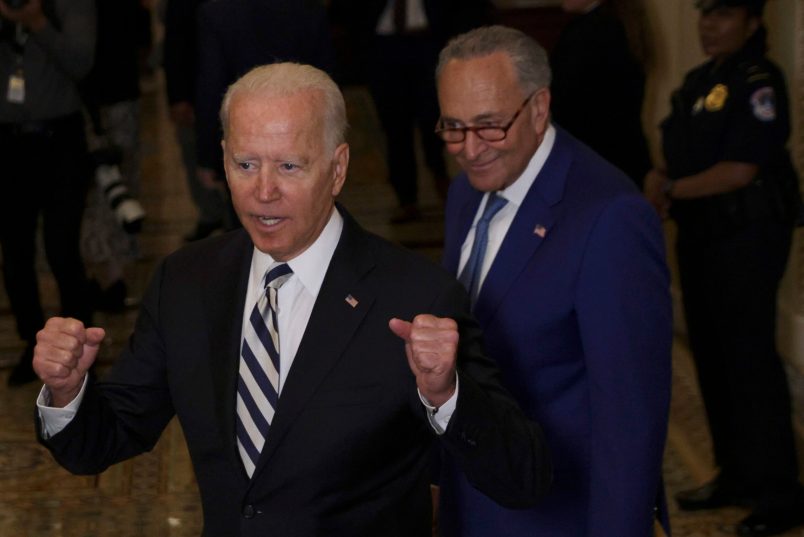Congress is back in session, but we’re continuing what began as a recess-time series of evening briefings on the reconciliation negotiations. Check in here to find out how the sausage-making is going.
Weeks passed when the reconciliation bill seemed dead, stalled out by Sens. Joe Manchin (D-WV) and Kyrsten Sinema’s (D-AZ) refusal to engage in specifics. On Tuesday, that dynamic changed very quickly, as the reconciliation package lurched back to life.
Details from President Joe Biden’s conversations with lawmakers leaked out, shading in an outline of a plan in the $1.9 trillion neighborhood. Democrats continue to say today that they think a framework — with a topline number and major programmatic elements — could be agreed to as soon as Friday.
In or Out of the Package
In (for now)
- The child tax credit, extended only a year or two
- Affordable Care Act subsidies
- Paid family leave (for four weeks, instead of 12)
- Homecare for elderly and disabled (less than $250 billion, down from the original $400 billion)
- Universal pre-K
Out (for now)
- Two years of tuition free community college
- Lifting cap on SALT
- Clean Electricity Performance Program
- Carbon tax
Outstanding Questions
- Even while Democrats are getting closer to an agreement than they’ve been in months, some pieces don’t yet fit.
- One of those is climate — with the CEPP off the table, it’s hard to tell how Democrats could possibly fill such a large gap.
- Sen. Tina Smith (D-MN) told TPM today that really only the carbon tax (which Manchin opposes) could do such heavy lifting alone. “Other options can make a big difference, but it would take more than one of them,” she said.
- Another is how to pay for it. Even as moderates like Sinema require that the package be paid for, she is single-handedly taking a huge revenue stream off the table by reportedly blocking all tax increases on businesses and the wealthy. That has the White House scrambling to find other ways to raise the money.
View Beyond Reconciliation
- While reconciliation has been sucking up all the oxygen in the chamber, the possibility of its impending passage has senators thinking about other priorities — namely, voting rights. Republicans filibustered the Freedom to Vote Act Wednesday, pushing the filibuster debate back to the fore.
- Key quote: “Staff can do a lot of it once the senators have said, ‘here’s the top line, here’s the basic programmatic elements,’” Sen. Tim Kaine (D-VA) told TPM of the reconciliation package. “People will work on turning that into actual legislative language and that will give us an opportunity to look at voting rights.”



